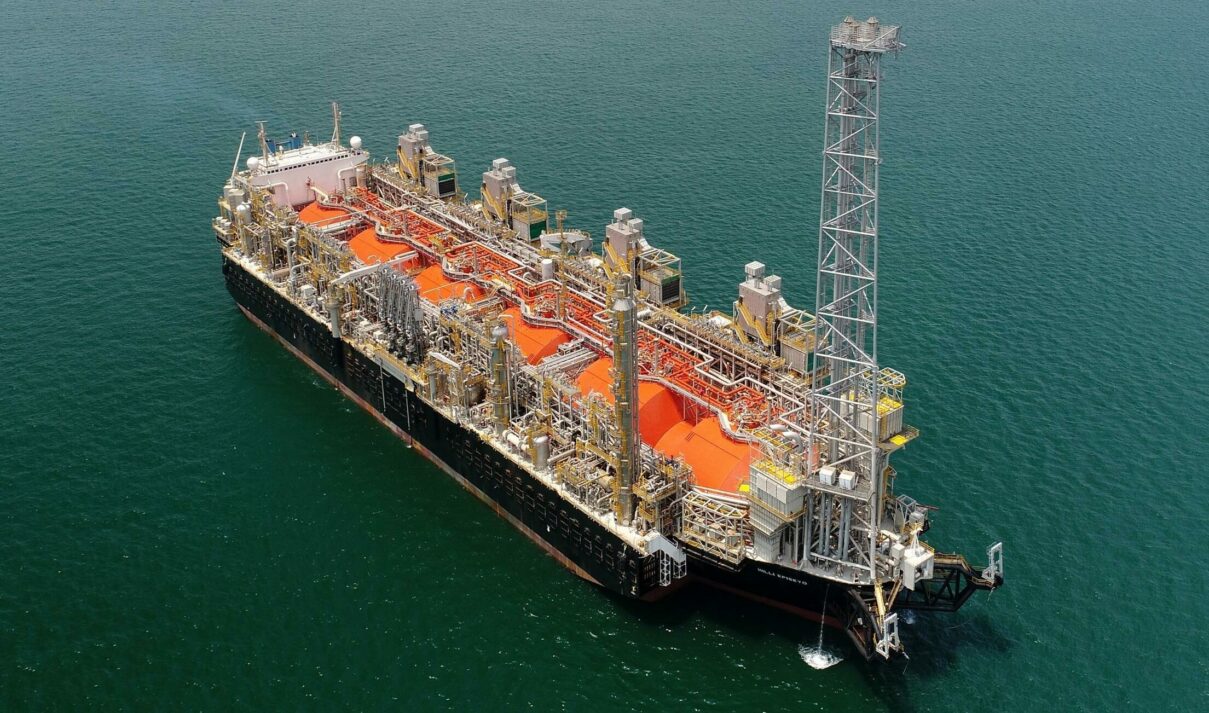The EU imports record volumes of liquefied natural gas from Russia. Report Ft

In the first seven months of this year, Belgium and Spain were the second and third largest buyers of Russian LNG, after China, according to industry data analysis by NGO Global Witness. The Financial Times article
The EU is set to import record volumes of liquefied natural gas from Russia this year, despite the bloc's goal to get rid of Russian fossil fuels by 2027, writes the Financial Times .
In the first seven months of this year, Belgium and Spain were the second and third largest buyers of Russian LNG, after China, according to industry data analysis by NGO Global Witness.
Overall, imports of super-cooled gas into the EU increased by 40% between January and July this year compared to the same period in 2021, before Russia's large-scale invasion of Ukraine.
The leap is from a low base, as the EU did not import significant quantities of pre-war LNG in Ukraine due to its dependence on gas transported from Russia.
But the increase is much steeper than the global average increase in Russian LNG imports of 6% over the same period, Global Witness said.
The NGO's analysis is based on data from industry analyst firm Kpler, which showed the EU is importing about 1.7% more Russian LNG than when imports hit an all-time high last year. year.
Global Witness said the cost of imported LNG from January to July at spot market prices amounted to €5.29 billion.
“It is shocking that EU countries have worked so hard to detox from pipelined Russian fossil gas, and then replace it with the transported equivalent,” said Jonathan Noronha-Gant, senior fossil fuel campaigner at Global Witness. "It doesn't matter if it comes from a pipeline or a ship: it still means that European companies are sending billions to [Vladimir] Putin's war chest."
Most of the Russian volumes come from the Yamal LNG joint venture, which is majority owned by the Russian company Novatek. Other shares are held by the French Total Energies, by the Chinese CNPC and by a Chinese state fund. The joint venture is exempt from export duties, but is subject to income tax.
In addition to bringing billions of euros in revenue to Russia as the EU continues to tighten its sanctions regime against Moscow, the import levels leave the EU exposed to any sudden decision by the Kremlin to cut supplies, such as did last year for pipeline gas.
Alex Froley, senior LNG analyst at consultancy ICIS, said "long-term buyers in Europe say they will continue to take contracted volumes unless banned by politicians." He added that an EU import ban would cause some disruptions in shipping as global trade patterns would have to be retooled, "but eventually Europe could find other suppliers and Russia other buyers."
Belgium imports large volumes of Russian LNG because its port of Zeebrugge is one of the few European transshipment points for LNG from the ice-class tankers used in the high north to regular cargo vessels.
According to analysts, Spain's Naturgy and France's Total also have ongoing contracts for large quantities of Russian LNG.
EU policy makers have urged European companies not to buy Russian LNG.
Spain's energy minister Teresa Ribera, whose government presides over the EU's six-month rotating presidency, said in March that LNG should be sanctioned, saying the situation was "absurd".
Kadri Simson, European Commissioner for Energy, said that the bloc "can and must completely get rid of Russian gas as soon as possible, always keeping in mind our security of supply".
EU officials have underlined the general effort to phase out Russian fossil fuels by 2027, but warned that a blanket ban on LNG imports risks triggering an energy crisis similar to last year's, when gas prices gas in the EU have reached record levels of over EUR 300 per megawatt hour.
An official said that although European gas storage bins are more than 90% full ahead of winter, there is still "a lot of nervousness" about further supply cuts.
Russian LNG accounted for 21.6 million, or 16%, of the EU's 133.5 million cubic meters of LNG imports (equivalent to 82 billion cubic meters of natural gas) between January and July, according to data Kpler, thus becoming the bloc's second supplier of liquid fuel after the United States.
In March, energy ministers introduced a clause in new rules governing the bloc's gas market that would allow governments to ban Russian and Belarusian companies from booking capacity on EU LNG infrastructure in a bid to find a legal way to prevent imports.
But the proposal must be negotiated with the European Parliament before it can enter into force.
Henning Gloystein, director of energy, climate and resources at Eurasia Group, said the likelihood of governments having to order industry closures due to gas shortages this winter was "close to zero".
The EU must reduce demand by a further 10%, Gloystein added. “If we don't structurally reduce gas consumption by 10-15%, we risk repeating this race [for supplies] every year”.
(Excerpt from the foreign press review by Epr Comunicazione)
This is a machine translation from Italian language of a post published on Start Magazine at the URL https://www.startmag.it/energia/lue-importa-volumi-record-di-gas-naturale-liquefatto-dalla-russia-report-ft/ on Sun, 03 Sep 2023 06:00:40 +0000.
